10 start with G start with G


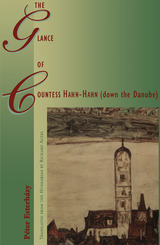
In The Glance of Countess Hahn-Hahn (down the Danube), Péter Esterházy tells the story of a professional traveler, commissioned--like Marco Polo by Kublai Khan--to undertake a voyage of discovery and prepare a travelogue. Communicating the details of his journey through terse and surreal telegrams, the Traveller weaves a rich tapestry of narratives, evoking the ethereal past and the precarious present of a disappearing world.
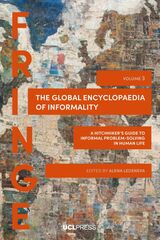
For a post-human hitchhiker, human life–with its anxiety, aging, illness, and constant need for problem-solving–may look unviable. Yet, for humans, the life struggle is softened by human touch, human emotion, and human cooperation.
The Global Encyclopaedia of Informality, Volume 3 continues the journey of the two previous volumes into the world’s open secrets, unwritten rules, and hidden practices. It focuses on issues of emotional ambivalence and pressures of the digital age. The informal practices presented in this volume demonstrate the urgency of alleviating tensions between continuity and all-too-rapid change and the need to tackle the central problem of modern societies—uncertainty.
The volume takes the reader on a biographical journey through elusive, taken-for-granted, or banal ways of getting things done from over seventy countries and world regions. It offers an innovative understanding of the significance of fringes and challenges the assumption that informality is associated exclusively with poverty, underdevelopment, the Global South, oppressive regimes, or the former socialist countries of Eastern Europe and Central Asia. It also maps the patterns of informality around the globe, identifies specific informal practices in a context-sensitive way, and documents their ambivalent impact on people engaged in problem-solving, on societies in which these problems arise, and on humanity overall.
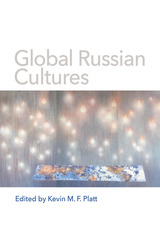
The volume's internationally renowned contributors treat the many different global Russian cultures not as "displaced" elements of Russian cultural life but rather as independent entities in their own right. They describe diverse forms of literature, music, film, and everyday life that transcend and defy political, geographic, and even linguistic borders. Arguing that Russian cultures today are many, this volume contends that no state or society can lay claim to be the single or authentic representative of Russianness. In so doing, it contests the conceptions of culture and identity at the root of nation-building projects in and around Russia.

Part I charts the historical and cultural currents that shaped Gogol's reputation, devoting particular attention to the models of authorship Gogol himself devised in response to his changing audience and developing authorial mission. Part II takes a panoramic view of the social milieu in which Gogol's status evolved. Finally, Part III examines the place of the classics in Soviet culture, with a focus on Gogol's role in the cultural revolution and his peculiar relationship with state power under Stalinism.

When one great author engages another, as Andrei Bely so brilliantly does in Gogol’s Artistry, the result is inevitably a telling portrait of both writers. So it is in Gogol’s Artistry. Translated into English for the first time, this idiosyncratic, exhaustive critical study is as interesting for what it tells us about Bely’s thought and method as it is for its insights into the oeuvre of his literary predecessor. Bely’s argument in this book is that Gogol’s earlier writing should be given more consideration than most critics have granted. Employing what might be called a scientific perspective, Bely considers how often certain colors appear; he diagrams sentences and discusses Gogol’s prose in terms of mathematical equations. The result, as strange and engaging as Bely’s best fiction, is also an innovative, thorough, and remarkably revealing work of criticism.
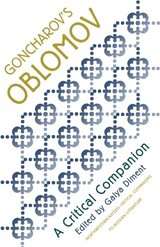
All the essays were written specifically for this volume and are published here for the first time. The book also includes an introduction, autobiographical materials, an annotated bibliography, and letters never before translated into English.
Contributors: Galya Diment, John Givens, Beth Holmgren, Karl D. Kramer, Ronald D. LeBlanc, Alexandar Mihailovic, and Brian Thomas Oles.
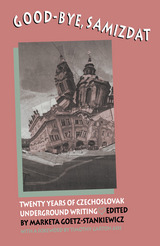
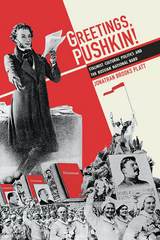
Jonathan Brooks Platt looks deeply into the motivations behind the Soviet glorification of a long-dead poet—seemingly at odds with the October Revolution’s radical break with the past. He views the Pushkin celebration as a conjunction of two opposing approaches to time and modernity: monumentalism, which points to specific moments and individuals as the origin point for cultural narratives, and eschatology, which glorifies ruptures in the chain of art or thought and the destruction of canons.
In the midst of the Great Purge, the Pushkin jubilee was a critical element in the drive toward a nationalist discourse that attempted to unify and subsume the disparate elements of the Soviet Union, supporting the move to “socialism in one country.”
READERS
Browse our collection.
PUBLISHERS
See BiblioVault's publisher services.
STUDENT SERVICES
Files for college accessibility offices.
UChicago Accessibility Resources
home | accessibility | search | about | contact us
BiblioVault ® 2001 - 2024
The University of Chicago Press









